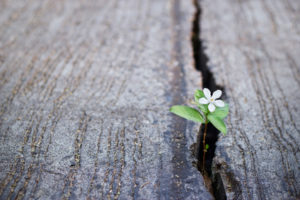 How do we deal with hard times? Sometimes it seems as though ostriches, with their fabled “head in the sand” mentality, have it right. When the going gets tough, stick your head in the sand and hope things blow over.
How do we deal with hard times? Sometimes it seems as though ostriches, with their fabled “head in the sand” mentality, have it right. When the going gets tough, stick your head in the sand and hope things blow over.
First of all, that concept isn’t true. As National Geographic Kids points out, if they did that, they wouldn’t be able to breathe! The times they’re likely to look as though they have their heads in the sand are a) when they’re scrounging for food with their heads down, and b) when the females are turning their eggs, which are laid in holes in the ground.
So instead of hiding from reality, they’re really feeding themselves — building up their strength — and ensuring that the next generation is cared for. They’re showing heart and hope.
It turns out that ostriches ARE a good example to follow in hard times, just not for the reason we’ve always thought.
When hard times come, either personal difficulty, or social or national turmoil and uncertainty, it’s hard to do the things we know deep down are good things — it’s hard to keep on being strong, facing the problems, finding ways to deal with them AND it’s hard to keep on exercising our creativity.
It sounds like a platitude, and on one level it is, but we need to have heart and hope in the hard times.
We need to keep feeding our minds with good things (and our bodies as well). Seek out truth and true sources of information. Read things that build your understanding — of our world, of people, of your craft. Seek out people who can support you, and whom you can support, as you go through whatever lies ahead. We all need companions on the journey — no matter how introverted we are.
We need to find ways to build our strength — that’s our inner strength as well as our physical strength. Again, steeping ourselves in the wisdom of books that help us go deeper into truth; seeking out experiences that will open us to new ways of doing things; learning about other cultures; opening our hearts.
And we need to find ways to build our hope in the future, and to bolster others’ hope in that future. This can happen in big and small ways — as Mother Teresa said, “Not all of us can do great things. But we can do small things with great love.”
Many of my friends are finding small ways to make a difference in peoples’ lives and to show heart and give hope in the hard times — crocheting beanies for cancer patients, taking in rescue animals, teaching, creating theatre for kids, building little free libraries and little free pantries, working with #WeNeedDiverseBooks.
Those of us who are involved in creating children’s books (and indeed, books for all ages) need to remember that our gifts of strength and hope and heart and celebration of diversity through our writing are needed more now than ever. Keep on writing! Keep on creating! Keep on hearting and hoping!
The word courage comes from early Latin and French words for heart. From etymology online: “c. 1300, from Old French corage (12c., Modern French courage) “heart, innermost feelings; temper,” from Vulgar Latin *coraticum (source of Italian coraggio, Spanish coraje), from Latin cor “heart,” from PIE root *kerd- (1) “heart” (see heart (n.)) which remains a common metaphor for inner strength.”
My friend Marcie Colleen reminded a group I’ve been participating in of this wonderful, inspiring, heartening quotation:
“Courage doesn’t always roar. Sometimes courage is the quiet voice at the end of the day saying, ‘I will try again tomorrow.’” – Mary Anne Radmacher
That takes heart, and it takes hope. May you have them in abundance. May they buoy you up in the hard times.
— Referencing the image at the beginning of this post, are you familiar with Malvina Reynolds’ song “God Bless the Grass”? I’m not mentioning it with any religious overtones at all, but the message is so good: “God bless the grass that grows through the crack, they roll the concrete over it and try to keep it back.” The grass, the truth, the deep meaning in that song all show a great abundance of heart and hope. Look it up. Give it a listen. I think you’ll be glad you did.

Lovely message this morning.
Thank you, Mary!
I love this post, Beth. Lots of great inspiration and sound advice here. I am surprised about the ostriches, but it all makes perfect sense. And thanks to Mary Anne Radmacher and Marcie Colleen – that really IS the meaning of courage. May we all have it – lots of it – for the upcoming year and beyond.
It’s amazing that the standard cliche about ostriches is wrong!!
That quotation is perfect, isn’t it. You’re so right that we’re going to need it.
Thanks, Genevieve!
Thank you, Beth…this is a wonderfully inspiring post, full of heart and hope. I’m on board,100%
Thank YOU, Vivian!
Such a thought-provoking and heart-felt post. We all have so much work to do in our own way. And, we must do it with an open mind and hope. Thank you!
Yes, we all have so much work to do. Thank you, Pat!
Just exactly what I needed to read. Thank you for this lovely post. Also do you remember the old poem, “Flower in the Crannied Wall”? It’s on a similar theme.
You are very welcome, Linda. And yes, I remember that poem, now that you mention it! Thank you for reminding me.
What a lovely post, Beth. Heart & hope – definitely needed now & for the future. Thank you for the reminder!
Thank you, Patricia!
Oh Beth, I love this post…My word for the year is heart. I didn’t know that the word courage comes from heart. So now I have a dual word-heart/courage. I think I have the good heart, but quite often my courage is lacking. Now I will always think of those two together. Thank you!
This is a great, inspiring post! I knew ostriches didn’t stick their heads in the ground, but I thought they would lie down, and their heads blend into the sand. Still – You learn something everyday!